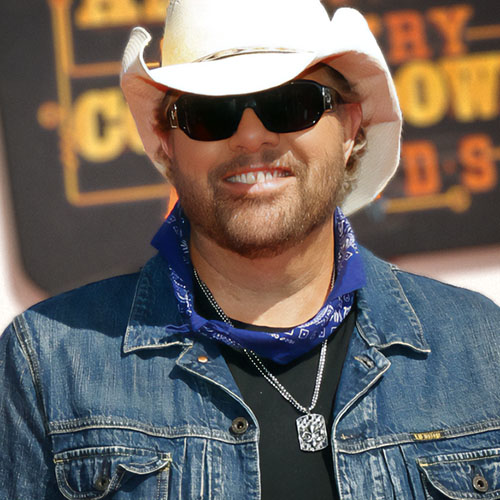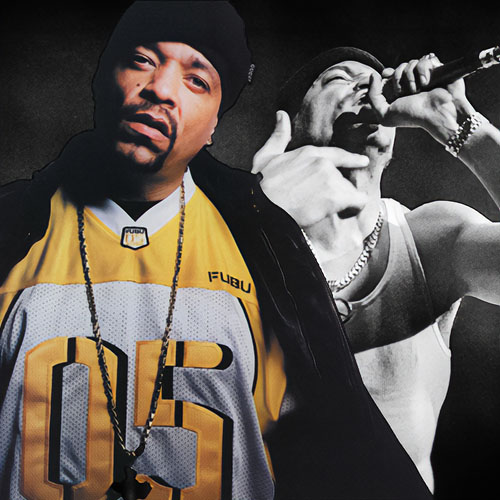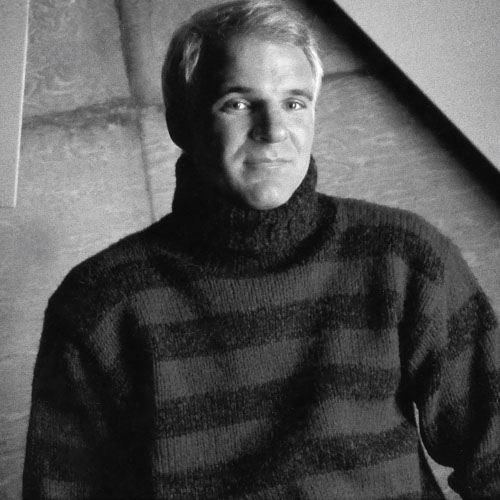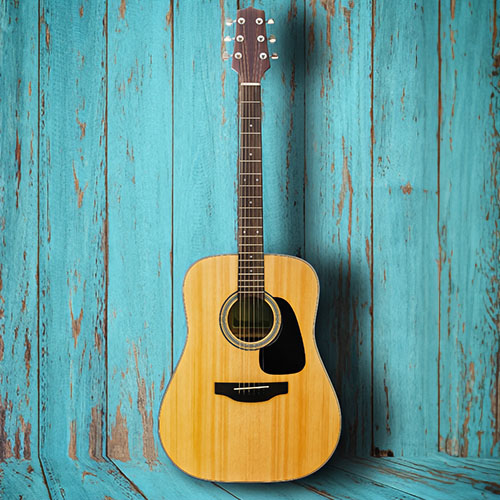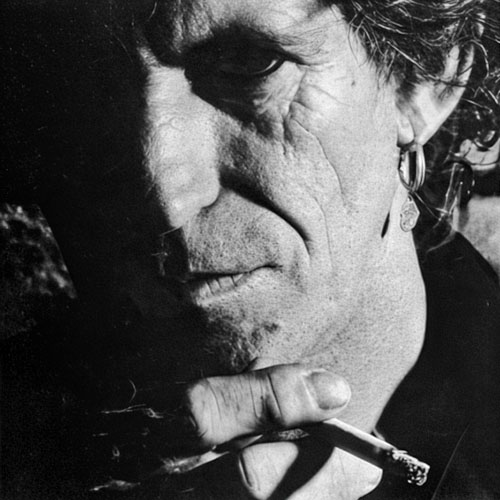One of the most influential and successful record producers in recent history, has parlayed platinum sales and even more brilliant business acumen into a multi-million-dollar empire, and he did so long before being a hip-hop hyphenate was fashionable — and without the benefit of much commercial air-play.
Master P
While the casual pop-music fan won’t recognize Master P’s work. Master P has earned the respect of industry insiders, the business community, and rap fans alike; launched the careers of a number of hip-hop stars, including his own son, Lil’ Romeo; and become a modern-day Renaissance man. He’s forged a fascinating multifaceted career as a record-company CEO, clothing designer, screenwriter, director, actor, movie and TV producer, and even pro basketball player.
His last CD, Good Side/Bad Side, dropped in late March. It sold more than 70,000 copies in its first week and debuted at No. 1 on the Billboard Independent Albums chart and at No. 11 on the Billboard Top 200 chart. He has been busy filming the second season of Nickelodeon’s Romeo!, in which he stars with Lil’ Romeo, basically playing himself, a music-industry executive and Romeo’s dad. He’s also, like so many other rappers, auditioning for movie roles, following up his appearances in Gone in 60 Seconds and Hollywood Homicide, and reading scripts for Lil’ Romeo, whose career he manages. The duo will also star in Uncle P, a film produced by Master P that is scheduled to hit theaters early next year. Both play basketball — Lil’ Romeo for an Amateur Athletic Union Junior Olympics team, the P. Miller Ballers (coached by Master P), which went to the championship series the past two year; and P himself for the American Basketball Association’s Las Vegas Rattlers, where his coach is Kobe Bryant’s dad.
Born Percy Miller in New Orleans on April 29, 1969, P grew up in and around the Big Easy’s notorious Calliope housing projects, where he lived with his paternal grandmother after his parents’ divorce. Drugs and violence were omnipresent; P lost a brother who was shot to death in a robbery. Through it all, P dreamed of a better life for himself and his family, and through hard work, education, and almost superhuman entrepreneurial savvy, he achieved that … and much more.
Is it strange to compare how you grew up to how your life is now?
Oh, yeah. I mean, when I look back on the early days growing up in the Calliope projects, man, this was all a dream, you know? Most kids didn’t make it in New Orleans in that project environment. I mean, New Orleans is known as the murder capital of the world, you know what I’m saying? You’ve got cocaine, heroin, and a lot of guys were addicted. And just to be able to go to school and get an education, be focused, and be able to make it above that was a blessing. And now, being able to be an entrepreneur and to make millions of dollars and to be successful in music, entertainment, also to be an athlete, to play basketball, just to be able to do all of that is a blessing, knowing that a lot of kids didn’t make it out.
How did growing up in that world shape Master P?
When you look at where I come from, there was hustlers on every block, you know what I’m saying? You couldn’t escape that type of environment, because everybody wanted it the fast way. I just had to figure out some kind of way … you know, if I want to survive, if I want to live, if I want to be able to make it out of here, I have to figure out another plan. I don’t think I could have made it if my mom wasn’t living in Richmond, California. When I went to go live with my mom, man, it was like a whole different world. Man, people in California, they going for stuff, you know? They’re making music. They ain’t talking about it, they’re making it.
But you started your record company, No Limit, in New Orleans, and you put that city on the map in terms of hip-hop.
You know, I never forgot where I came from. I mean, I definitely looked at New Orleans as, this is where I live at, this is my home. I gotta represent that to the end. But to be able to go out to California … my music, you know, it sounded country to them. It [didn’t] sound like the music they had out there. It was different. I was on tour with Tupac [Shakur], and I come out with my down-South slang, and they see me with those gold teeth, and people were like, “Man, hurry up and get Tupac on stage! Man, who is that?” But I believed it. Before the end of the tour, even Tupac, and all them, they believed in my music. They were like, “Man, it’s different, but it’s real.”
Much of No Limit’s success has been due to the explosion of gangsta and hard-core rap, which you predicted. But you put your own spin on that genre.
I figured that NWA and Tupac, they already had that gangsta/hard-core/ street thing. My thing was, I wanted to keep it hard-core, but I wanted to put a military feel — an army — behind this. Anyone can be a gangster or a thug. You [get people to] be loyal to something. And that’s how I was able to sell 75 million records, because we put into the fans the loyalty. Not just buying the records — people want to be like No Limit. They want No Limit tattoos. It’s for real, it’s a part of the culture. And that’s what made the difference. That’s how we were able to outsell everybody else.
And you put out a hell of a lot of records.
We started putting out records every other week. People would say, “No, you can’t do that!” No, we can. There ain’t any such thing as “We can’t do this.” You got to be able to realize that to be in the Guinness Book of World Records for the most records sold — 75 million records for hip-hop music, you know, street music. It was a blessing, you know, but we weren’t afraid to tap into that market. Then [we] come back on the other side to keep us out there in the market, then we come back doing films. [I was] the first one to make a DVD movie for hip-hop. And I was the first one, with Good Side/Bad Side, to put out a real DVD movie with the album. I’ve got two double CDs and a real feature-length movie. That’s to stop the bootlegs, and that’s to stop the Internet downloads. People want that package because you get more for your money.
And you managed to sell 75 million records with very little commercial air-play, or help from MTV.
The thing is, with me, I don’t look for MTV to play my videos. I look to the street. In the end, if your music is popular in the street — just like [my single] “Them Jeans,” the biggest seller in the clubs and stuff, you know — once the clubs and the street make it [popular], everything else is going [to follow]. And my whole thing, to be honest with you, my whole basis, even though I make a lot of street music, is I also make music that girls can relate to. That’s our big fan base. See, the females are who buy the music, you know what I’m saying? You have to make something for the females. I’m always gonna have the street music, but I’m always gonna have something for the females to relate to and be like, “Yeah, you know what? I like that.” And I think that’s what a lot of guys in hip-hop can’t beat us out at. Most rappers, they degrade the females. I don’t do that. Because to be honest with you, if a woman is feeling good about my music, most likely she’s gonna buy it. A guy that’s feeling good about your music, he can get a bootleg. The girl got to have the pictures, she got to have the album, she wants the cover.
So much of hip-hop revolves around sex, and sexy marketing. What are some of your thoughts on that?
Let me tell you something: If you don’t take care of yourself, you will only be able to sell a minimum [number] of records, to be honest with you. People don’t realize you’re not selling millions and millions of records if you’re not eye candy, to be real with you. That goes for hip-hop, that goes for everything. I’ve been in this business ten years, and I’ve been successful, and that’s because, you know, I take care of myself. I work out, you know, I’m playing basketball, I’m always keeping myself in good condition. People don’t realize that plays a big role in your longevity, how you’re [perceived] in the community. People want something that looks good too. And you know, it’s the same thing with your magazine: If a girl looks good, people are gonna want to be a part of it, you know? Female or male, if you don’t take care of yourself, you ain’t gonna go to that next level. You wanna be a star, you wanna be an entertainer, you gotta look good. You gotta take care of yourself. If you’re looking good and you make good music, come on, man, they’ll love you. Girls wanna feel the same way guys feel. Girls wanna see a nice-looking guy, you know, he’s working out, he’s taking care of himself. Girls like that.
In 1999 you were on the cover of Fortune magazine, and you were also tapped as one of the magazines “40 Richest Under 40,” with a net worth of $361 million. What was that like?
[Laughs] Oh, man, just being from the ghetto, I mean, who would ever imagine a guy coming from the streets, from the hood, and [then] being able to be a part of that world? It was about growing and maturing. Making the right business decisions, making the right businesses. If I would have gotten a record deal, I would have never been able to [achieve that]. You can’t get that with a record deal. I own 85 percent of the music going to a distribution company; the distribution company is getting 15 percent. [I’m not getting] 12 or 13 percent — like most of these guys get — an album.
Hip-hop has had a violent history, with guys like Tupac and Notorious B.I.G. cut down in their prime. How do you manage to stay safe?
I don’t get caught up into the controversy, you know what I’m saying? It’s about being a man. I think people gotta start reaching out to people. If you have a problem, call them up on the phone and say, “Man, what’s up?” You know, work out your differences. A lot of guys get caught up in the music and putting all this controversial music out there, and like they say, you live by the sword, you die by it. And they don’t realize all the people they’re affecting out there, and you’re turning yourself into a target because you’re making that type of controversial music, you know? I mean, look at 50 Cent and Ja Rule now. Their whole world is changing, and it doesn’t have to be like this. After looking at Tupac and Biggie, who would want to live like that? The best thing I was able to do was — being from the streets — I was able to say, you know what, if a guy around me ain’t living right, or don’t want to live right, I gotta move on. I don’t want him around me, you know? I didn’t come into the game to be a part of all that.
Lately it seems this country’s obsessed with celebrity justice, and a frequent topic has been the Kobe Bryant case. I know you’re close to Kobe Bryant’s family, and people don’t really know the man like you do.
Well, you know what, that’s just people making judgments [when], like you say, they really don’t know people. Anybody can judge from across the street, even some guy who’s got a little job for a news company or something, you know? I mean, it’s easy to prejudge. You have to be there to understand the real. You know, everybody don’t know other people’s situations unless they’re there. I just choose not to prejudge people, you know.
Here you are, Master P, a guy from the hood, finding yourself acting opposite Oscar winners like Angelina Jolie and Nicolas Cage in Gone in 60 Seconds and icons like Harrison Ford in Hollywood Homicide. How do they treat you?
You know what? When you handle your business, they respect you. I mean, Harrison Ford, Nicolas Cage, these guys respect me because I handled my business. You know, when I went to work, man, I was just like any actor. I don’t care about no music, or playing basketball. When I’m out there making a movie, I gotta play the part. I’m the kind of person, man, like I got a gift. If I see a script and I see my lines, all I have to do is read it three times, and then I automatically remember them. So those guys love working with me.
Now you’re working with your son, rapper Lil’ Romeo, on his show. Did you have to do much convincing to the network to let you do the show, considering where Master P started, with the hardcore rap? How did that work?
Just like anybody, like you, everybody got a good side and bad side. So I’m not showing people, “Oh, I’m just all tough all the time.” I’m not. My thing is, when I’m with my son and I’m trying to take care of my business, I’m trying to do right. But if you step on my toes, I do come from the ghetto, I do have another side. You know what? I just keep it real with people. That’s my whole selling point: I’m real. I ain’t trying to prove anything. When I come into a corporate [environment], I’m coming to be a corporate executive. You gotta know how to respect people. And that’s what I do. I come with respect. I could go in the hood and be a whole totally different person [to] somebody that’s trying to be disrespectful. I think that’s in life, that’s in surviving. You gotta know how to survive in this world, man. And I think if you go trying to do the right thing first, it’ll be all right. Most people go in trying to do the wrong thing, or try to be so hard. You ain’t gotta be like that, man. I mean, your past is your past. And I give it to people straight up front, man. This is where I come from, but I’m trying to live a whole different life.
Your son is a star in his own right, but how do you keep him straight when he has so much more than you did? How do you keep him and your other kids levelheaded?
To be honest with you, by showing him. [Going] back through the projects, you know what I’m saying? Letting him see this is where we come from, this is where we could be at right now if I wasn’t focused. So if you don’t be focused, this is where you gonna be at, you know what I’m saying? If you lose everything you got, you have to have something to fall back on. [You] teach them, you know what I’m saying? Show ’em, “Hey, look, I’m trying to do the right thing. I sacrificed so you don’t have to live that type of lifestyle.” And I think let them know, you know, believe in the man up above. You ain’t gotta be perfect, but you gotta do your part. So, you know, we’re making sure you getting your education right now. We ain’t worried about no movies or records, man, we want you to be educated, so when you can’t sell no records or make no movies, you can run your own business.
How many hats are you wearing now? Oh, man, the clothing line did real well — number one in boys, number three in young men. We got this new watch collection, Master Pieces. P Miller rims, P Miller amps and speakers at Circuit City right now doing real well. I got the movies doing well. I got the women’s clothes, so I’m looking for the next models. You should put that in the magazine: I’m looking for the next supermodels for P. Miller Passion, the Passion jeans line. You know, I’m really blessed. I’m having fun and I’m venturing out into other avenues.
Whats it been like playing with the Las Vegas Rattlers?
Oh, man, lemme tell you something.
This year I averaged 22 points a game, nine assists. Right now the Denver Nuggets got me on hold. So man, you know what, if you want something, you gotta work for it, you know?
So what advice do you have for fans out there who want to be the next Master P?
Believe in themselves; there ain’t no limit from there. Follow your dreams, don’t ever give up, ’cause you never know when it’s going to be your time. You can’t ever worry about what somebody says about you, you know. Shake the haters off, man, don’t get caught up in the haters, because that’s when you really fall back. You know, keep it moving.
Now we cannot be sure how many of the (current) four million followers of Master P on Instagram may be female, odds seem good that at least some of them are. Even dudes do free stuff, after all. UMe has a site too, of course perhaps most importantly, he did in fact end up playing a little professional basketball. Man’s got game. Literally.
















